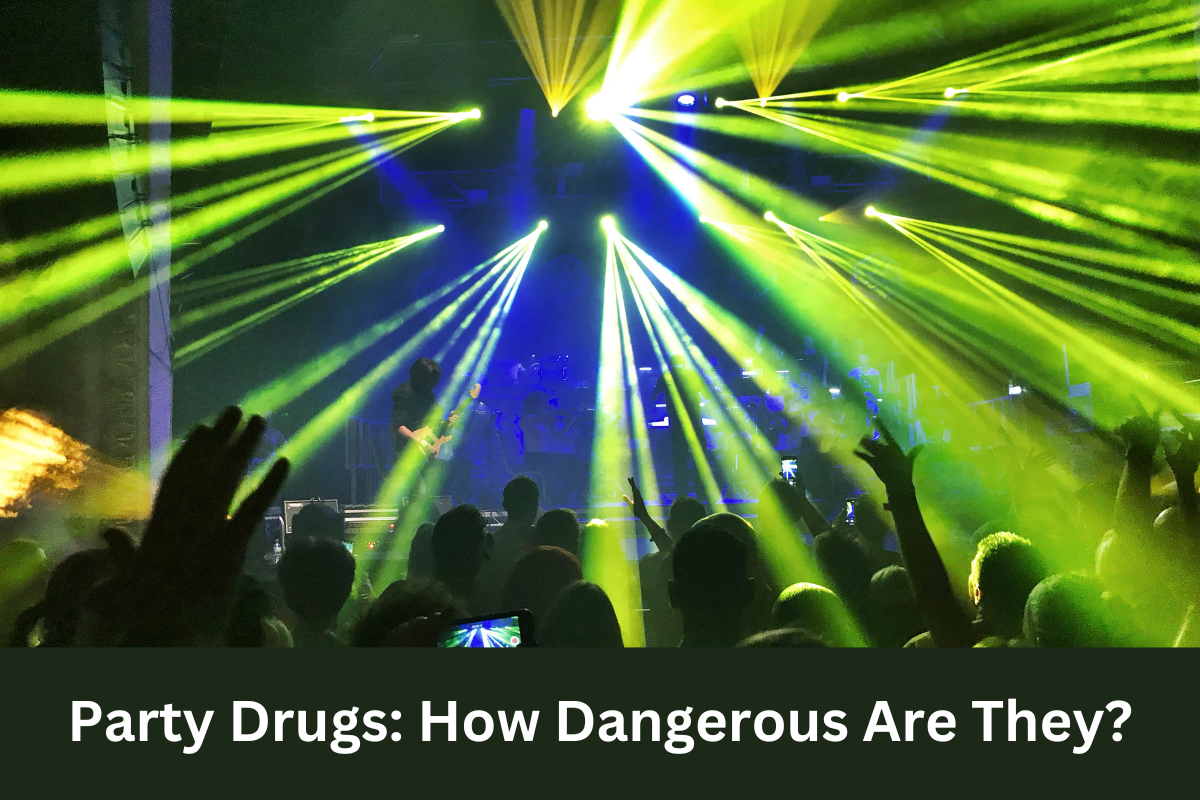By: Design for Change
Categories:
Party Drugs: How Dangerous Are They?
You are here:Party drugs, also known as recreational drugs, are an accepted form of socializing among youth today. Much like alcohol, party drugs are commonplace in many social settings. As such, people who use the substances tend to downplay or ignore the risks involved. Anyone who accepts these drugs as safe is likely to suffer severe consequences.
The groups of people most likely to use party drugs are generally between ages 15 to 24. These individuals should familiarize themselves with potential side effects and risk factors before using the drugs. If you or someone you know uses recreational drugs, here are some surprising facts you need to know.
Why Do People Use Party Drugs?
People use party drugs to get high and have more fun. The drugs produce euphoric effects and a sense of high energy. They may also reduce inhibitions and heighten sensory perceptions. Most recreational drugs enhance social experiences by elevating a person’s mood and awareness. Of course, the effects of the drugs depend on the individual, the dose, and the presence of other mood-altering substances.
What Are the Different Types of Party Drugs?
Party drugs typically fall under three categories: stimulants, depressants, or hallucinogens. They generally appear in pill form that can be ground into powder for injecting, smoking, snorting, or dissolved in beverages. Some of the party drug pills are prescription drugs obtained from street dealers, home medicine cabinets, or friends. They may include legal psychoactive or stimulant drugs, or illicit synthetic drugs.
Most Commonly Used Party Drugs
Typically, the most popular party drugs are cocaine, ecstasy, methamphetamine, and ketamine. However, the list is much longer, as shown below:
> Commonly Used Stimulant Drugs
- Ecstasy, MDMA, and Molly
- Cocaine and Crack-Cocaine
- Amphetamines
- Meth
> Commonly Used Synthetic Psychoactive Drugs
- LSD
- PCP
- Bath Salts
- Flakka
- Spice or K2
- Ketamine
> Commonly Used Plant-Based Psychoactive Drugs
- Marijuana
- Peyote
- Mushrooms
- Salvia
> Commonly Used Depressants (Date Rape Drugs)
- Roofies
- Ketamine
- Poppers
- GHB
- Benzodiazepines
Each of the above depressants is sold under various street names and produces different long-term and short-term effects, withdrawal symptoms, and risks. Below are some things you need to know if you are using party drugs or know someone who is.
Stimulant Drugs: Side Effects and Risks
Using stimulants only once can lead to immediate and serious side effects. With repeated use, the long-term effects often lead to death. Below is a list of side effects to expect when using stimulants:
- Anxiety
- Confusion
- Paranoia
- Depression
- Hallucinations
- Increased blood pressure
- Rapid heart rate
- Palpitations, chest pain
- Nausea and vomiting
- High body temperature
- Panic attack
- Delirium
- Tremors, convulsions
Stimulant overdose is often characterized by cardiovascular problems, organ failure, stroke, or heart attack.
Although most people consider alcohol a stimulant, it is technically a depressant. When used with a stimulant, the combination can be fatal.
Synthetic Psychoactive Drugs: Side Effects and Risks
Synthetic psychoactive drugs are far more dangerous than plant-based psychoactive drugs. People who use or misuse or inappropriate use these substances put themselves and others in harm’s way. Accidental or intentional suicide is often the result of synthetic psychoactive drugs. The range of side effects a person may experience with these types of drugs may include:
- High body temperature
- Increased heart rate
- High blood pressure
- Trouble thinking
- Loss of appetite
- Sleep disturbances
- Anxiety, agitation
- Paranoia
- Shallow breathing
- Delusions
- Hallucinations
Overdose symptoms may include seizures, psychosis, loss of balance, stroke, heart attack, organ failure, coma, and death.
Depressants: Side Effects and Risks
Depressants, also known as “date rape drugs” are often used to exploit unsuspecting individuals, particularly young girls. For instance, ketamine causes sleepiness, fatigue, and unconsciousness which make it easy to take advantage of a person who is under the effects.
Some of the most common side effects of depressants include:
- Extreme tiredness
- Immobility
- Decreased reaction time
- Weakness
- Unconsciousness
- Stiffening of the muscles
- Problems thinking clearly
- Temporary memory loss
- Fatigue
- Respiratory depression
Depressants can cause overdose and death, especially when mixed with alcohol or other drugs. The symptoms of overdose include slowed breathing, unconsciousness, slowed heart rate, low body temperature, seizures, coma, suffocation, and heart failure.
Treatment for Party Drugs Addiction at Design for Change Recovery
If you’ve used party drugs regularly, you may have experienced several withdrawal symptoms when the drug leaves your system. Some of the symptoms may have been uncomfortable enough to force you to seek more of the drug. This may be a sign that you are addicted to the substance and need professional treatment to help you get past the withdrawal stage without using again.
Design for Change Recovery is here to treat not only your addiction to party drugs but also to guide you into understanding the reasons why you use drugs. We will also provide a comprehensive program that utilizes a holistic, full continuum of care designed to meet your unique needs.
Our evidence-based treatment programs provide various levels of care to ensure that you get the right program for your specific situation. We offer outpatient, residential, intensive outpatient, intensive inpatient, and partial hospitalization programs.
We believe our facility in beautiful Lancaster, CA is the perfect environment for leaving temptation and stress behind so you can focus on healing. Furthermore, we are in-network with many reputable insurance providers to make sure you get the highest level of care possible.
To get started on a process that will transform your life in so many ways, call, email, or visit us online today. One of our treatment advisors will be available to assist you in any way.
Sources:
https://medlineplus.gov/clubdrugs.html – Club Drugs
https://nida.nih.gov/research-topics/commonly-used-drugs-charts – Commonly Used Drugs Charts


